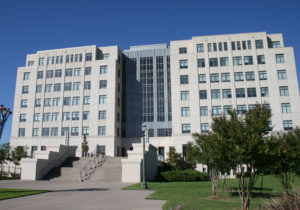Georgia to remove references to ‘equity,’ ‘inclusion’ and ‘diversity’ from teaching standards
The Georgia Professional Standards Commission unanimously voted to remove the words “diversity,” “equity” and “inclusion” from K-12 teacher preparation standards during its June…

The Georgia Professional Standards Commission unanimously voted to remove the words “diversity,” “equity” and “inclusion” from K-12 teacher preparation standards during its June meeting.
The changes were proposed in the GPSC’s May meeting, after the University System of Georgia requested clarification for how instruct incoming teachers, said Educator Preparation Division Director Penney L. McRoy.
She hopes the changes eliminate misunderstanding but assures the public they will not change the way teachers interact with their students.
“We still expect EPPs to prepare educators who are well equipped to address the learning needs of all students they may encounter, and who are well prepared to meet students where they are within a positive and welcoming learning environment,” McRoy said.
Despite the changes receiving a unanimous vote in its favor, some teachers and parents opposed it during the meeting’s public comment period.
“To blatantly remove all references to diversity, equity and inclusion is just horrible,” President and CEO of Georgia Educators for Equity and Justice Aireane Montgomery said. “To erase diversity, equity and inclusion is to ignore and minimize marginalized communities.”
But GPSC Chairman Brian Sirmans maintains that eliminating these words can prevent misunderstanding since the words have come to be represent controversial ideology.
“We were told these words were leading to difficulty in determining program standards,” he said, according to the Rome News-Tribune.
The vocabulary changes will apply to preparation standards for all positions in Georgia’s K-12 schools, from teachers to principals and superintendents.
Alternative words are already being proposed, such as “fairness” for “equity,” “different” or “unique” for “diversity,” and “welcoming” for “inclusive.”
The changes will take effect July 15, according to Sirmans.



